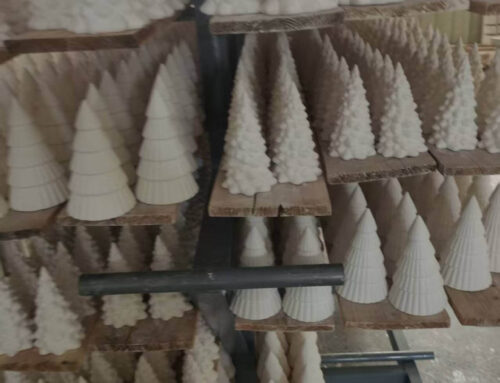The European Union (EU) is a massive and diverse market for ceramic products, especially mugs, which are popular in both retail and hospitality industries. If you’re planning to import ceramic mugs to the EU, understanding the rules and regulations is crucial for a smooth and cost-effective process. This guide covers the key steps you need to take, from ensuring compliance with EU standards to handling customs duties and shipping logistics.
1. Understanding EU Regulations for Ceramic Mugs
Why Are These Certifications Important?
Before we dive into the specific certifications, let’s first address why they matter. The EU has stringent rules for consumer safety, environmental impact, and product quality, especially when it comes to items like ceramic mugs that come into contact with food or beverages. Complying with these regulations is not just a legal requirement but also essential for ensuring your customers’ safety and building trust in your products.
Before importing, you must understand the strict EU regulations for ceramic products. The EU prioritizes product safety, requiring non-toxic materials and quality compliance.
Product Safety and Compliance
Ceramic mugs meant for food use must comply with EU food contact material regulations. These laws ensure that mugs are safe for drinks like coffee and tea, preventing harmful substances from leaching into beverages.
Food Contact Certification: Ensuring Safety
One of the most important requirements for importing ceramic mugs to the EU is food contact certification. The EU’s Regulation 1935/2004 mandates testing to confirm that materials are safe for food and drinks.
If you also plan to sell in the U.S., FDA certification may be necessary. Meeting both EU and FDA food safety standards is crucial for international sales.
Key Tip: Ensure your ceramic mug factory provides food contact certification before shipping.
ROHS Testing: Meeting Environmental Standards
The Restriction of Hazardous Substances (ROHS) Directive limits harmful substances like lead, mercury, and cadmium. Even though it’s mainly for electronics, it applies to some consumer goods, including ceramic mugs.
Key Tip: Always request ROHS compliance documentation to meet EU environmental laws.
CE Certification: Meeting Safety and Health Standards
While not all ceramic mugs require CE marking, some categories must comply with EU safety, health, and environmental requirements.
Key Tip: Check if your mugs need CE certification and obtain the necessary documentation before importing.
LFGB Certification: Special Requirements for Germany
Germany has some of the strictest food safety rules. If you’re selling there, LFGB certification is necessary. It verifies that ceramic mugs are safe for food contact.
Key Tip: If targeting the German market, ensure your mugs meet LFGB standards.
Radioactivity Testing: Ensuring Safety
The EU requires random radioactivity testing on ceramic products to ensure safety. This step ensures that imported mugs pose no radiation risk.
Key Tip: Confirm that your supplier can provide radioactivity test reports.
2. Finding a Reliable Ceramic Mug Supplier
Once you’ve ensured your products comply with EU safety standards, the next step is to find a high-quality ceramic mugs factory. You may want to work with a supplier who has experience exporting to the EU and is familiar with the specific requirements for shipping to the region.
What to Look for in a Supplier
- Certifications: Ensure your supplier can provide food safety and environmental compliance documents.
- Customisation: If you need custom mug manufacturing, discuss design options in advance.
- Sample Testing: Always request samples to check quality before bulk ordering.
Homey Ceramic is a trusted custom mug manufacturer that meets all EU compliance requirements. We offer custom designs, logo printing, and high-quality ceramic mugs tailored to your business needs.
3. EU Customs Duties and Taxes
Understanding customs duties and VAT is crucial for budgeting your imports.If you’re a first-time buyer and unsure about duties and taxes, you can check this website:https://taxation-customs.ec.europa.eu/buying-goods-online-coming-non-european-union-country_en
HS Code and Customs Duties
The EU uses HS (Harmonised System) codes for product classification. Ceramic mugs usually fall under ceramic tableware, with duties ranging from 2-6%, depending on origin and material.
Key Tip: Make sure to use the correct HS code for accurate tax calculation.
VAT (Value Added Tax)
In most EU countries, VAT is around 20% and is calculated on the goods’ value plus customs duties.
Customs Clearance Documents
To clear your mugs through customs, you’ll need:
- Commercial Invoice (Product details, price, origin)
- Bill of Lading (Shipping contract)
- Certificate of Origin (May help reduce customs duties under trade agreements)
Working with a customs broker can help streamline this process.
4. Shipping and Delivery Options
Once your goods clear customs, you’ll need to arrange for delivery to your warehouse or final destination within the EU. You can choose between different shipping methods such as sea freight, air freight, or rail, depending on your budget and timeline.
- Sea Freight: Cost-effective for large shipments but slower.
- Air Freight: Faster but more expensive.
- Rail Freight: A good alternative for European deliveries.
Ensure proper packaging to prevent breakage, especially for fragile ceramic products.
5. Warehousing and Distribution
If you’re importing a large quantity of ceramic mugs and plan to sell them within the EU, you may want to set up customs warehousing. This allows you to store goods in an EU warehouse without paying customs duties and VAT until the goods are distributed or sold. This can be beneficial for reducing upfront costs, especially if you are testing the market or selling to multiple EU countries.
6. Marketing and Selling Your Ceramic Mugs in the EU
The EU ceramic market is competitive, so a solid marketing strategy is key.
Key Marketing Strategies
- Target Audience: Define whether you’re selling to retailers or hospitality businesses.
- Sales Channels: Sell through e-commerce platforms like Amazon, Etsy, or local distributors.
- Customisation: Offer custom mug manufacturing for corporate gifts or branded mugs to stand out.
Conclusion
Importing ceramic mugs to the EU can be a profitable business if you follow the right steps. Understanding EU regulations, selecting a high-quality ceramic mugs factory, managing customs duties, and ensuring smooth shipping are all essential for success.
Looking for a reliable supplier? Homey Ceramic provides fully certified, custom-designed ceramic mugs tailored to your business needs. Contact us today to bring your custom mug manufacturing vision to life!
At Homey Ceramic, we provide high-quality ceramic mugs that comply with all the necessary certifications for the EU market, including food contact certifications, ROHS, CE, LFGB, and radioactivity testing. Partner with us for a smooth and compliant import process, and enjoy peace of mind knowing that your mugs meet the highest safety standards.
Learn how to import ceramic mugs to the EU with essential certifications like food contact, ROHS, CE, LFGB, and radioactivity testing for compliance and safety.





